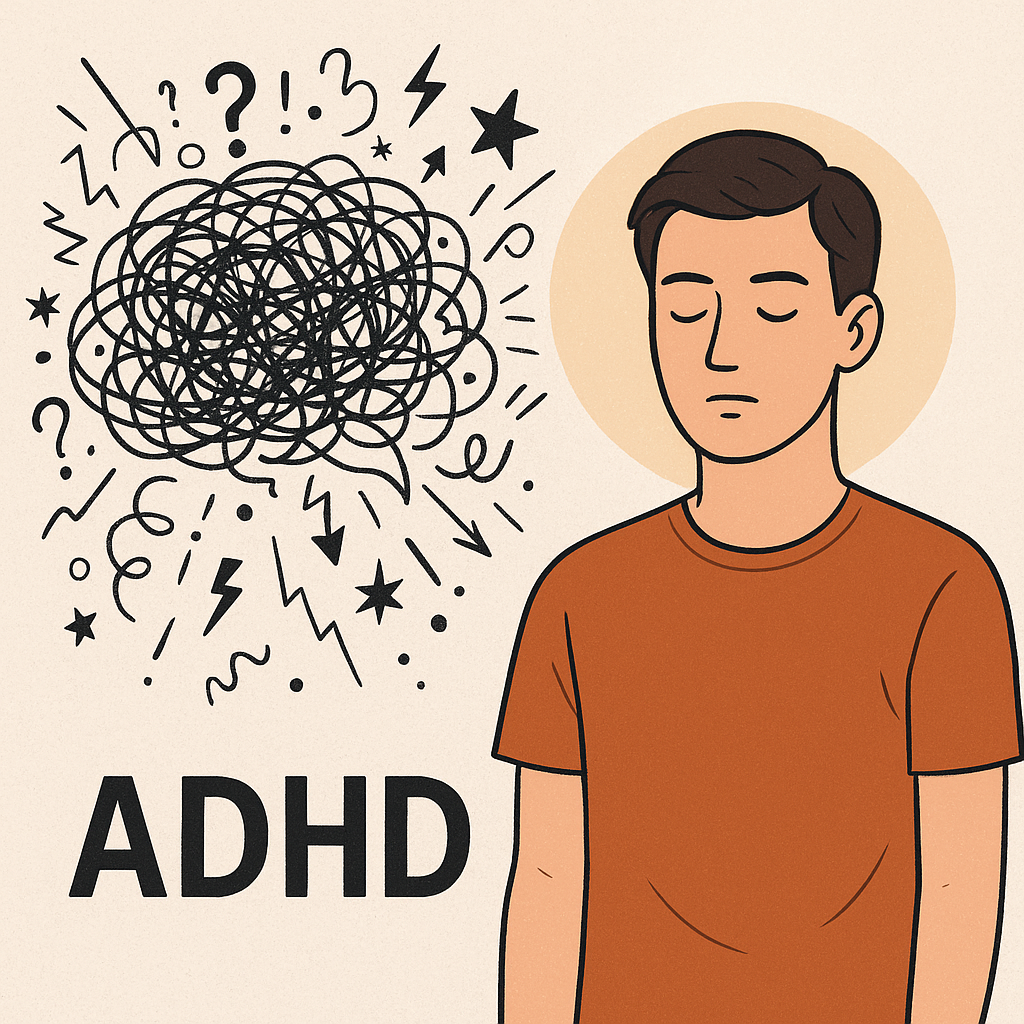ADHD and Shame: The Hidden Emotional Toll No One Talks About

The Silent Pain Beneath the Surface
For many people living with ADHD, the struggle goes far beyond distraction, restlessness, or impulsivity. Beneath these visible symptoms lies a deeper, more painful truth: shame.
This shame isn’t loud — it’s subtle, chronic, and quietly corrosive. It shows up in the form of self-blame, guilt, and the exhausting pressure to “do better.” And unfortunately, it's rarely addressed in conversations about ADHD Treatment or daily management.
Where Shame Begins: A Life of “Why Can’t I Just…”
From Childhood Criticism to Adult Self-Doubt
Shame for people with ADHD Treatment often begins early. From childhood, many are labeled:
-
Lazy
-
Disrespectful
-
Unmotivated
-
“Too much” or “not enough”
These labels are applied not because of bad intentions, but because of a fundamental misunderstanding of the Symptoms of ADHD — things like forgetfulness, emotional outbursts, or difficulty completing tasks. Over time, children internalize these reactions and carry them into adulthood.
What begins as external judgment turns inward, becoming:
-
“Why can’t I just focus?”
-
“Why do I always mess up?”
-
“Why am I so inconsistent?”
This is where shame quietly embeds itself into identity.
The Disconnect Between Effort and Outcome
Perhaps the most painful aspect of ADHD is the disconnect between effort and results. People with ADHD often try incredibly hard — but their outcomes don’t reflect their effort.
They might:
-
Work for hours and still miss a deadline
-
Set reminders but forget them anyway
-
Genuinely care but still forget important events
This gap creates a deep sense of inadequacy. Even when praised, they doubt themselves — because they remember all the invisible moments they struggled to function.
The Emotional Toll of Shame in ADHD
Shame as a Barrier to Seeking Help
Shame doesn’t just hurt emotionally — it prevents healing. Many individuals delay or avoid seeking ADHD Treatment altogether, fearing judgment, stigma, or even the label itself.
They may think:
-
“I don’t want to use ADHD as an excuse”
-
“I should be able to fix this on my own”
-
“Others have it worse — I’m just failing”
This mindset keeps people stuck, hiding behind coping strategies that don’t work and avoiding conversations that could change everything.
Shame Fuels Perfectionism and Burnout
In trying to “make up” for their ADHD, many people become perfectionists. They push themselves harder than others, rarely allow mistakes, and feel intense guilt when they fall short.
Over time, this leads to:
-
Emotional exhaustion
-
High-functioning burnout
-
Fear of being truly seen
What starts as compensation turns into self-destruction — all rooted in a desire to be “enough.”
Breaking the Cycle: Healing from Internalized Shame
Validating the ADHD Experience
One of the first steps toward healing is validation — acknowledging that ADHD is a neurological difference, not a moral failing. The Symptoms of ADHD are real and explainable, and they don’t reflect laziness or lack of character.
Validation sounds like:
-
“My brain is wired differently — not wrongly.”
-
“I’m allowed to struggle without apologizing for it.”
-
“My past difficulties weren’t because I didn’t care — they were because I wasn’t supported.”
This shift is powerful and necessary.
Finding Compassion Through ADHD Treatment
Effective ADHD Treatment doesn’t just address attention or impulsivity — it must also support emotional health.
Holistic treatment often includes:
-
Therapy: To explore shame narratives and build self-compassion
-
Coaching: To create structure and reduce overwhelm
-
Community support: So individuals know they aren’t alone
-
Medication: To manage mental clutter and reduce executive dysfunction
How ADHD Medication Can Ease the Emotional Load
While ADHD Medication is primarily designed to support focus and attention, it can also play a surprising role in reducing shame — by helping individuals experience success more consistently.
With clearer thinking, better time awareness, and fewer emotional meltdowns, people begin to rebuild trust in themselves. They start to feel:
-
More in control
-
More productive
-
Less reactive
This improved functioning helps challenge the belief that they are “broken” — a belief shame desperately wants them to keep.
Redefining Worth Beyond Productivity
You Are Not a Project to Fix
Perhaps the most important realization is this: You are not a broken version of someone else’s success.
Living with ADHD means embracing a different operating system. It means redefining success based on effort, progress, and authenticity — not just outcomes.
Healing from shame looks like:
-
Celebrating small wins
-
Accepting imperfect days
-
Surrounding yourself with people who understand neurodiversity
-
Saying “I matter” even when things are messy
Final Thought:
ADHD may challenge focus, memory, and regulation — but shame attacks identity. That’s why addressing the emotional toll of ADHD is just as important as managing the symptoms. Through compassionate ADHD Treatment, appropriate ADHD Medication, and supportive environments, healing is not only possible — it’s deserved.
- Art
- Causes
- Crafts
- Dance
- Drinks
- Film
- Fitness
- Food
- Oyunlar
- Gardening
- Health
- Home
- Literature
- Music
- Networking
- Other
- Party
- Religion
- Shopping
- Sports
- Theater
- Wellness



